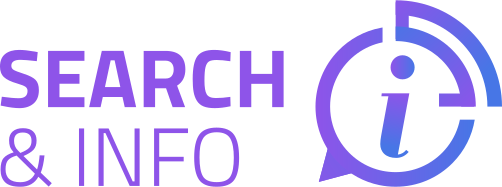Artificial Intelligence (AI) has swiftly transitioned from a futuristic concept to an omnipresent reality, transforming various facets of modern society. Its applications, ethical considerations, and future trends continue to captivate researchers, policymakers, and the general public alike.
Applications of AI in Various Sectors
AI&8217;s applications span numerous industries, from healthcare to finance, education to entertainment, reshaping the way we live and work. In healthcare, AI-driven systems enhance diagnostics and patient care by analyzing medical records and imaging far more efficiently than human practitioners. AI algorithms are capable of identifying anomalies in X-rays or MRI scans with high accuracy, and predictive analytics help in foreseeing outbreaks of diseases, optimizing treatment plans, and even tailoring personalized medications.
In the financial sector, AI is revolutionizing trading, fraud detection, and customer service. High-frequency trading algorithms execute trades in milliseconds, capitalizing on market shifts faster than any human could. AI systems also scrutinize millions of transactions to identify fraudulent activity, adding an additional layer of security for consumers and businesses. Meanwhile, in education, AI-powered tools offer personalized learning experiences and instant feedback, addressing individual student needs and adapting curriculum delivery accordingly.
Furthermore, AI has permeated the entertainment industry, with algorithms curating content on streaming platforms, creating movie scripts, and even producing music. Virtual assistants like Siri, Alexa, and Google Assistant have become household names, facilitating daily tasks with their ability to understand and process human language. AI is not just enhancing existing services but also paving the way for innovations that were once thought impossible.
Ethical Considerations in AI Deployment
As AI becomes more integrated into our lives, ethical considerations are of paramount importance. One significant concern is the potential for job displacement. Automation and AI can perform repetitive and even complex tasks more efficiently than humans, which might lead to significant job losses across various sectors. The paradox of technological progress is that while it creates new opportunities, it also renders certain skills obsolete. Ensuring a balanced transition where the workforce is re-skilled and new job opportunities are created is crucial.
Another pressing ethical issue is data privacy. AI systems require vast amounts of data to function effectively, often collected without explicit user consent. The potential for misuse of personal information is high, and safeguarding against data breaches and unauthorized usage is essential. Bias in AI algorithms also poses a serious ethical concern. If the data used to train AI systems contain biases, these will be perpetuated and possibly amplified, leading to unfair treatment in critical areas such as hiring, law enforcement, and lending.
Furthermore, as AI starts to make decisions autonomously, questions of accountability arise. Who is responsible when an AI system fails or makes a harmful decision? Establishing clear guidelines and legal frameworks to address these scenarios is key to fostering trust in AI technologies. Lastly, there’s the existential risk of AI surpassing human intelligence, often referred to as Artificial General Intelligence (AGI). Ensuring that AGI, if achieved, has safeguards to prevent misuse is a challenge that the global community must address collectively.
Innovations Driven by AI Research
AI research is the driving force behind groundbreaking innovations that continuously push the boundaries of what technology can accomplish. In natural language processing (NLP), AI systems have achieved remarkable milestones, from understanding and generating human language to real-time translation and sentiment analysis. Technologies like OpenAI&8217;s GPT-3 have brought significant advancements, enabling machines to write coherent essays, generate creative content, and even code software.
In robotics, AI-driven innovations are leading to more adaptive and intelligent machines capable of performing complex tasks. From autonomous vehicles navigating traffic to drones performing search and rescue operations, the integration of AI in robotics is expanding biological capabilities and fostering new applications that were once confined to science fiction. These intelligent systems are not just limited to industrial applications; they are also making their way into homes as robotic assistants, providing support for elderly care and household chores.
AI is also making strides in scientific research, accelerating discoveries in fields like genomics, pharmaceuticals, and materials science. Machine learning algorithms can sift through massive datasets to identify patterns and correlations that would take human researchers years to discern. This acceleration in research pace is resulting in quicker development of new medications, more efficient renewable energy solutions, and more resilient materials for various applications.
Moreover, AI is playing a crucial role in addressing climate change through predictive analytics and optimization models. These models help in efficiently managing resources, reducing waste, and forecasting environmental changes with higher accuracy, aiding policymakers in crafting informed strategies for sustainable development. As AI research progresses, these innovations promise to further intertwine technology with human progress, enhancing our capabilities and well-being.
Ethical AI: Striking a Balance Between Innovation and Responsibility
Balancing the benefits of AI with the ethical challenges it presents is an ongoing struggle that requires a multi-faceted approach. One of the most critical strategies is the implementation of robust regulatory frameworks that govern the development and deployment of AI technologies. These frameworks should address issues such as transparency, to ensure that AI systems are understandable and accountable, and fairness, to guarantee that they do not perpetuate biases or inadvertently harm vulnerable populations.
Another key aspect is fostering interdisciplinary collaboration. The intersection of AI with fields such as ethics, law, sociology, and psychology can yield more holistic and inclusive solutions. Collaborations between technologists and ethicists can lead to the creation of AI systems designed with ethical considerations at their core, rather than as an afterthought. Lawmakers and policymakers must also be proactive in understanding AI&8217;s capabilities and limitations to create effective regulations.
Public awareness and education are equally important. Ensuring that the general public understands what AI is, how it works, and its potential risks and benefits can lead to more informed public discourse and acceptance. Mindful deployment of AI, where users are aware of data collection and its uses, can help in building trust and reducing fears associated with AI technologies.
Meanwhile, the AI community must adhere to ethical guidelines and best practices. Initiatives such as the AI Ethics Guidelines by the European Commission and ethical frameworks proposed by various AI research organizations are crucial steps in this direction. Continuous dialogue and engagement with all stakeholders, including the public, private sector, and governmental bodies, are necessary to navigate the complex ethical landscape of AI. By striking a balance between innovation and responsibility, society can harness the full potential of AI while mitigating its risks.
Future Trends in AI and Their Societal Implications
The future of AI promises a plethora of advancements that will further embed it into the fabric of everyday life, but it also brings profound societal implications. One of the most anticipated trends is the rise of AI in personalized medicine. AI&8217;s ability to analyze genetic information and medical histories could lead to treatments tailored specifically to an individual’s genetic makeup, revolutionizing how diseases are treated and potentially curing ailments that are currently seen as incurable.
Another burgeoning trend is the continuation of AI in enhancing cybersecurity. As cyber threats become more sophisticated, AI systems capable of predicting, detecting, and mitigating these threats in real-time will become an essential component of digital security infrastructure. These systems will learn from previous attacks, continually improving their defense mechanisms and ensuring a more secure digital landscape.
The integration of AI with Internet of Things (IoT) devices is expected to proliferate, leading to smarter homes, cities, and workplaces. AI-driven IoT can optimize energy usage, improve traffic management, enhance public safety, and contribute to more sustainable urban environments. This interconnected smart ecosystem could significantly improve quality of life by increasing efficiency and reducing waste.
Moreover, advances in quantum computing are likely to supercharge AI capabilities. Quantum computing&8217;s potential to process information at unprecedented speeds will enable more complex AI models and algorithms, leading to breakthroughs in fields like cryptography, climate modeling, and drug discovery. However, these advancements also pose ethical and security challenges, requiring robust strategies to manage their societal impact.
Finally, as AI systems become more autonomous, the importance of ethical AI will grow, necessitating ongoing monitoring and regulation to ensure they are used responsibly. The potential for AI to enhance human capabilities and solve global challenges is immense, but realizing this potential depends on a conscientious approach to its development and deployment. The future of AI is a complex, dynamic landscape that requires careful stewardship to navigate its opportunities and challenges effectively.

